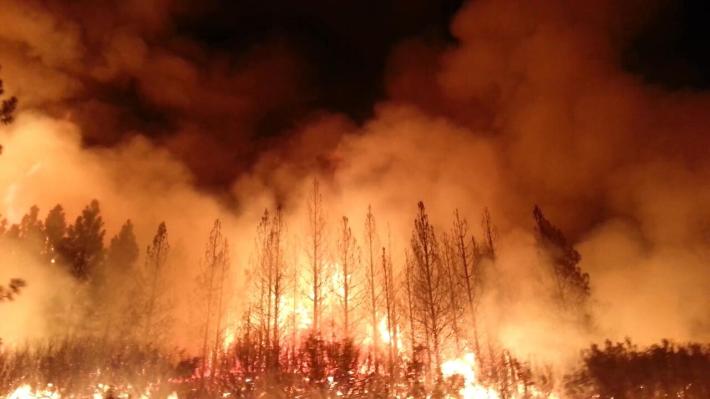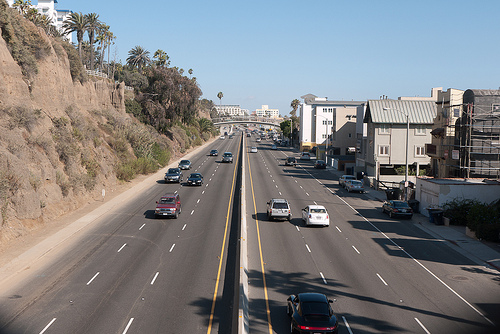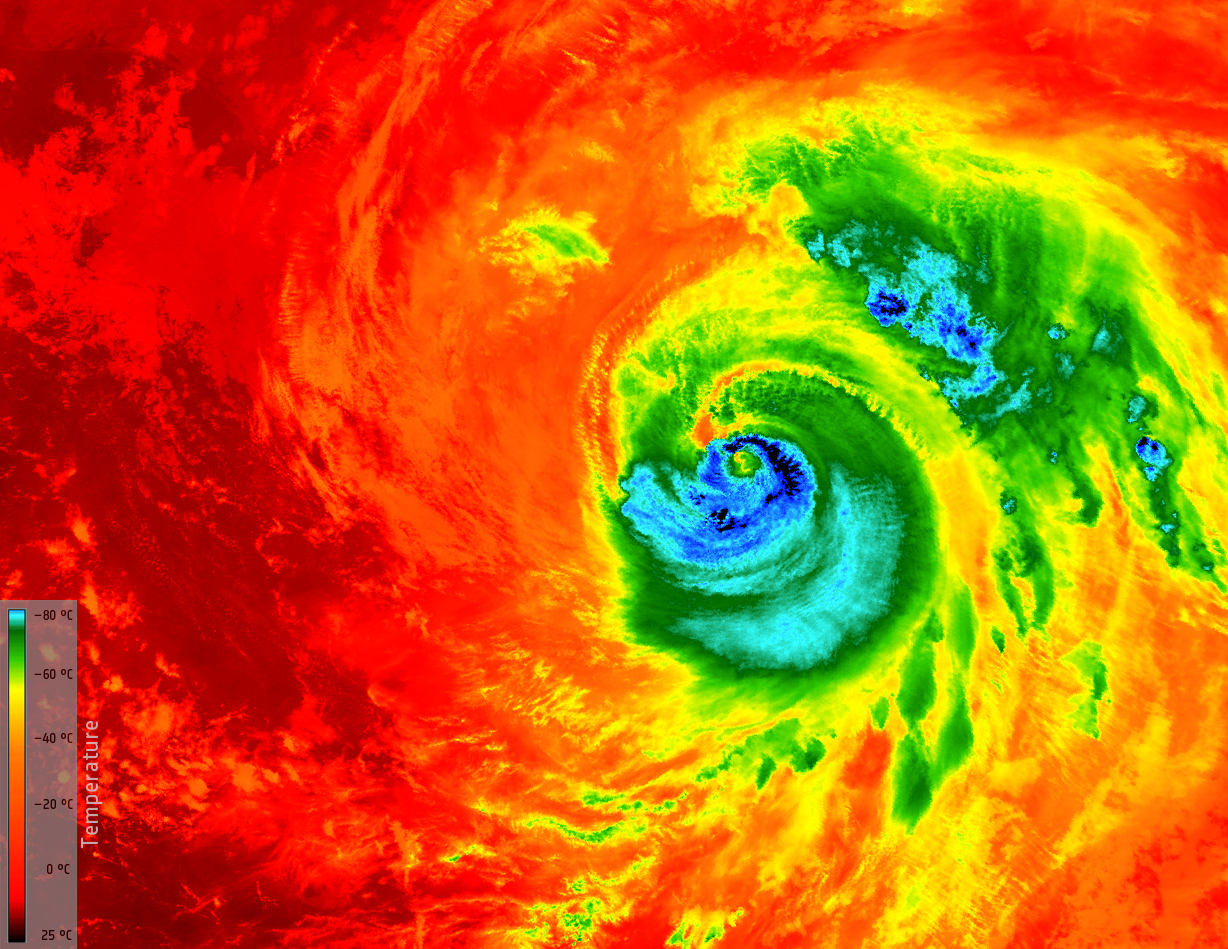[dropcap size=big]S[/dropcap]o long, L.A.? Climate experts now say world has just about a decade to dramatically reverse course on climate emissions or likely pass a point-of-no-return scenario in which a hotter planet would be unrecognizable to the world we know today.
Commissioned as part of the landmark Paris Climate Accord, a newly-published analysis calculates human society must cut yearly carbon emissions in half by 2030 to hit the temperature target set in the 2015 agreement, 1.5°C peak warming. Failure to do so will result in catastrophic and irreversible changes to the environment, the report forecasts, replete with food shortages, mass marine die-offs, collapsing ice sheets, rising seas, resource instability, and migration crises, said the Intergovernmental Panel on Climate Change (IPCC)
That gives us just over a decade to take significant steps to check emissions or almost certainly face destructive consequences. The findings prompted United Nations Environment Program director Erik Solheim to call the assessment, “a deafening, piercing smoke alarm going off.”
“We have to put out the fire,” he told the Washington Post.
Seventeen of the 18 warmest years in the modern record have now occurred since 2001: https://t.co/BKq6BPFj7v pic.twitter.com/9TQrFvwdiC
— NASA Climate (@NASAClimate) January 18, 2018
Just three years removed from the most comprehensive political agreement on climate change ever — the same which President Donald Trump ceremoniously abandoned last year — these findings make clear the Earth is racing toward doomsday’s doorstep, and only the most dramatic, most transformative actions can turn us around.
“Limiting global warming to 1.5ºC would require rapid, far-reaching and unprecedented changes in all aspects of society,” reads the first line of the Monday statement written by the IPCC.
So far, there has been little sign the world is up to the task. After a brief plateau in 2015 and 2016, climate emissions reached a record high in 2017. That same year the United States turned its back on the Paris Accord.

For people who've grown used to hearing warning cries about the environment, the headlines surrounding this report may sound familiar. There has been much talk of controlling climate change, from the clarion calls a half century ago, to Big Oil’s cover-up of what they knew was inevitable, to former Vice President Al Gore’s landmark documentary “An Inconvenient Truth,” to the most recent global agreement. But little has been palpably accomplished as the planet trudges forward on the same path.
RELATED: Los Angeles Is Asleep at the Polls: Five Scary Truths We Learned After California's Primary Election
[dropcap size=big]A[/dropcap]mong the people who have been paying attention, some hope the latest dire assessment will act as a wake-up call to the realities facing human civilization.
“The tone of this report has certainly been ratcheted up in terms of severity and … the realism of this issue,” Neil Berg, an associate director at UCLA’s Center for Climate Science, told L.A. Taco. “We are seeing the effects of climate change emerge right now. We’ve had warming for many decades leading up to now. The report for me [is saying] we don’t have as much time as we once thought.”
Berg believes the increasing frequency of extreme weather events over the past few years – devastating hurricanes, wildfires, droughts, heat waves, and floods – will help awaken the everyday citizen. “People are experiencing these shifts in the climate system and they’re recognizing that a new normal is upon us,” he said.

Of course, mere recognition is not enough. As the IPCC’s report makes clear, the next ten years must be a decade of action if we are to mitigate the disastrous future in store. According to Berg, those actions begin with the individual.
“Greenhouse gas emissions are due to people and our decisions and our way of life. It’s not like some policy is telling us to burn fossil fuels,” Berg said. “We’re [not] all secretaries of state going to the Paris treaty negotiations.”
Individual choices like using public transportation more often and eating less meat will certainly impact the amount of continuing carbon emissions. But, with so little on the clock, will they be enough?
“We start by demanding that we … implement real green infrastructure in California and lead the way,” said Dana Bell, co-chair of the climate committee for the L.A. chapter of the Democratic Socialists of America. She noted outgoing Governor Jerry Brown’s discreet affinity for expanding the state’s oil wells despite for his broadly accepted persona as a climate leader, and called for the end of fossil fuel production in the state.
“I know the report is daunting and depressing but we still have time if we want it,” Bell said. “The worst thing we can do is give up.”
Read the whole report here, and the IPCC’s Summary for Policymakers, for more. If we don’t meet the global challenge before us, we’ll learn just how precise the scientific experts’ foreboding predictions really are. Luckily, about a decade remains before we start finding out.







